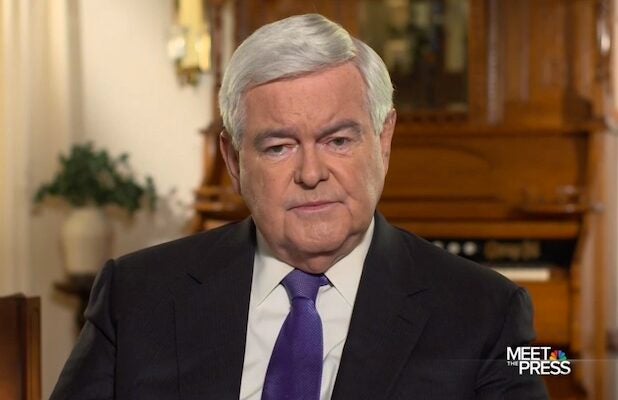
In the age of Huawei, the Belt and Road Initiative, and China’s state-sponsored companies, we need the United States Export-Import Bank more than ever.
The EXIM Bank, an independent agency, provides government-backed financing for those looking to export goods and services from the United States. Since the 1930s, it has helped grow the U.S. economy and foil unfairly aggressive foreign competitors. However, due mostly to recent politics, it hasn’t been fully functioning since 2014. This needs to change — for many reasons.
First, according to Chinese Defense Minister Wei Fenghe, the country’s Belt and Road Initiative (BRI) is absolutely a part of its military plans. This comes after years of the Chinese Communist Party insisting the worldwide infrastructure scheme is only focused on economics and international cooperation. Wei plainly said future Chinese military cooperation would fit “within the framework of BRI.”
This is a big deal. According to Ex-Im Bank reports, the BRI system includes about 30 percent of the world’s gross domestic product and impacts more than 66 percent of the world’s population. China’s Export-Import Bank alone has participated in more than 1,800 projects with a loan value in excess of $149 billion. If China links the economic might of the BRI with its military (the Communist Party-controlled People’s Liberation Army boasts 2 million troops) U.S. national security would be seriously threatened.
As I discuss in my upcoming book, “Trump vs China: Facing America’s Greatest Threat,” one way that the Chinese Communist Party imposes its will through the BRI is through so-called “debt-trap diplomacy.” It is a clear strategy to gain leverage and influence over countries that owe China for massive infrastructure loans.
This is how it works: China offers large loans to smaller, poorer countries in exchange for the country’s bolstering of Beijing’s strategic interests. Then, China takes control of the assets built with the money — ports, airfields, etc. — when the smaller countries can’t cover the debt.
For one example, Sri Lanka signed a 99-year lease of its Hambantota port facilities over to China after it couldn’t pay China back for its initial loan. Right now, according to Ex-Im reports, eight more countries owe China. Two of these, Djibouti and the Maldives, are critical to China’s Maritime Silk Road (the BRI’s maritime route).
Again, this is not exclusively an economic strategy. The Wall Street Journal reported in late July that the Chinese were holding secret negotiations for exclusive military access to a part of the Ream naval base in Cambodia for the next three decades. The base is on the Gulf of Thailand and represents an important strategic point from which China could project power and influence in the South China Sea. This sort of activity is happening everywhere. For example, there are at least 46 existing or planned Chinese port projects in sub-Saharan Africa, as well.
At the same time, China is working to make sure its domestic industries can dominate. The “Made in China 2025” strategic plan seeks to replace imported or acquired technology across 10 advanced manufacturing sectors and at least 70 percent Chinese domestic content by 2025 for certain products. (Keep in mind, it will probably do so by stealing the intellectual property of the imported technology and creating Chinese versions.)
Many of these technologies have both civilian and military uses. This is not simply about continuing to dominate small electronics and cell phone manufacturing. This effort by China poses a potentially serious threat to our national security. According to the Pentagon, the dual-use nature of the Made in China 2025 program directly supports Chinese military modernization goals by stressing proprietary mastery of these technologies.
Finally, China uses its export credit agencies (ECAs) as a strategic arm for its “debt-trap diplomacy” — and the U.S. is not maintaining pace to counter the Chinese Communist Party’s influence. In 2018, China’s official ECAs outpaced the Ex-Im Bank by more than 100 fold (in terms of the amount of medium- to long-term credit it extended). That year, America was 25th in the world for such credit — a mere 0.2 percent of the market. So, compared to the United States, China is spending more, gaining more influence, and more quickly improving its economic and military positions across the globe.
President Trump’s National Security Strategy rightly identifies economic security as national security. Clearly, the Chinese Communist Party is eroding U.S. economic influence abroad. The Ex-Im is one of our best tools to prevent this and keep America strong.
Congress should reauthorize the Ex-Im bank, so we can compete against the Chinese Communist Party’s economic strategy of world domination. The Ex-Im bank can level the playing field for U.S. businesses, help them be more competitive, and ultimately help them create more U.S. jobs. All the while, we will be strengthening our national security. For example, Ex-Im can help bolster the president’s “Prosper” Africa initiative — which would directly compete with China’s aggressive activity there. This would be good for the U.S. economically, militarily, and diplomatically.
The Ex-Im Bank’s charter is set to expire soon. There is an effort in Congress proposed by Sens. Kevin Cramer, R-N.D., and Kyrsten Sinema, D-Ariz., to renew the charter for 10 years. This is exactly what should happen.
Without EXIM, there is no practical, clear way to compete against the ever-expanding Chinese economic-military machine. If we do nothing, the Chinese Communist Party’s power will grow, our economic and national security interests will diminish, and our very way of life could be consumed by a totalitarian system.
This is not an acceptable outcome if we wish to remain the strongest, freest, most prosperous country on the planet.
This is a demo advert, you can use simple text, HTML image or any Ad Service JavaScript code. If you're inserting HTML or JS code make sure editor is switched to "Text" mode.